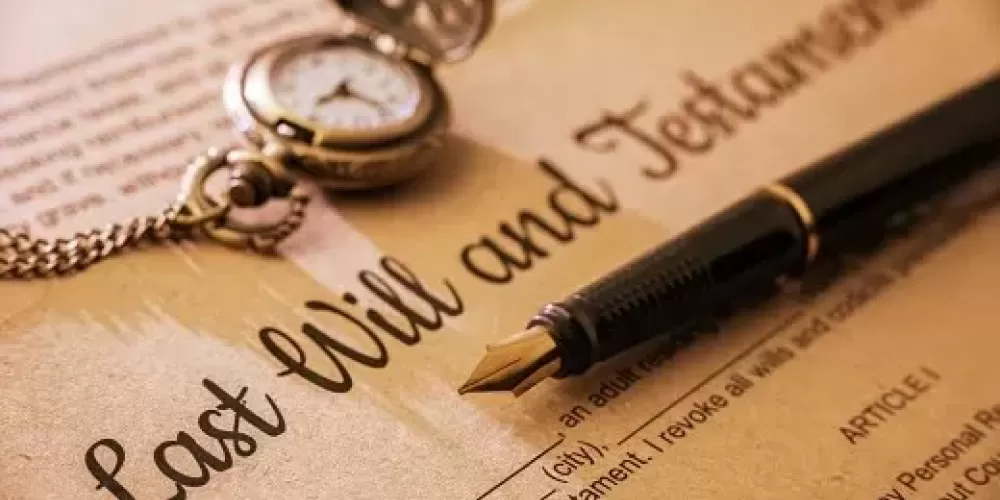
Can Your Will be Challenged and Invalidated?
Although your Last Will and Testament (“Will”) is only one of many potential factors that may play a role in determining what happens to your assets after you pass away, your Will must satisfy the conditions set forth in the Maryland Code to be legally valid, and your Will can be challenged for certain reasons.
Although a person executing a Will (called the “testator”) can name beneficiaries to inherit their assets, the local Register of Wills office checks the Will when it is presented to ensure it was executed in accordance with state law before the personal representative can be appointed and administer the estate. The requirements are that it was signed by the testator and by two credible witnesses, and that the testator was at least 18 years old when the Will was signed.[1] In addition, the testator must have been competent when the Will was executed.
With respect to the issue of capacity, the law presumes that every person is sane and has the mental capacity to make a valid Will, so a person who wants to challenge the Will must prove the testator was “permanently insane” or was of “unsound mind” at the time the Will was made.[2] Although it has been called a “heavy” burden to prove, it is not insurmountable.[3] For example, in 1907, the Court of Appeals of Maryland held that a jury should hear the case of someone who disinherited his two youngest children on his belief that his wife was unfaithful when there was no justification for his belief.[4]
A Will that was executed properly can still be invalidated if it does not reflect the intent of the testator. Lawsuits filed to challenge a Will can include issues like fraud and undue influence, and similar rules apply to revocable living trusts (“Trusts”). For instance, in a 1999 case, two of the decedent’s three children contested their mother’s Trust because it left $2.5 million to one of her sons but virtually nothing to her other children (only $100 and a picture).[5] The Court of Special Appeals of Maryland held that a jury should decide the case because there was enough evidence of undue influence as this son handled his mother’s financial affairs pursuant to a power of attorney, he was involved in her estate planning discussions, there were numerous meetings and communications between the two, and the disposition of assets reflected a change from her prior Wills.
Lastly, Section 4-105 of Maryland’s Estates and Trusts Article provides the ways by which a Will can be revoked. In a 1998 case, the Court of Special Appeals of Maryland held that the trial court did not make a mistake when it ruled that the Will was properly revoked because the testator’s son “tore the will in (the testator’s) presence, pursuant to her express direction and with her consent,” in accordance with the statute.[6] The Court also affirmed the lower court’s holding that the testator had the mental capacity to revoke her Will.
Despite the rules governing Wills, as noted above, some of your assets may be outside the scope and control of your Will. For example, Wills do not control assets owned by your Trust, assets with joint owners, and assets with beneficiaries attached, such as life insurance policies and retirement accounts. These assets will bypass the public inheritance proceeding known as probate. Also, if you do not have a Will, your state’s default intestacy law may apply, and a special elective share law may establish a minimum inheritance for a surviving spouse.
If you have any questions about your estate plan, contact Justin M. Ginsburg, Esq. at (301) 220-5069. Mr. Ginsburg is an Associate attorney in McNamee Hosea’s Estates and Trusts and Tax Practices and since 2016 has helped hundreds of clients with their estate plans and with resolving federal and state tax controversies. The above is not legal advice.

